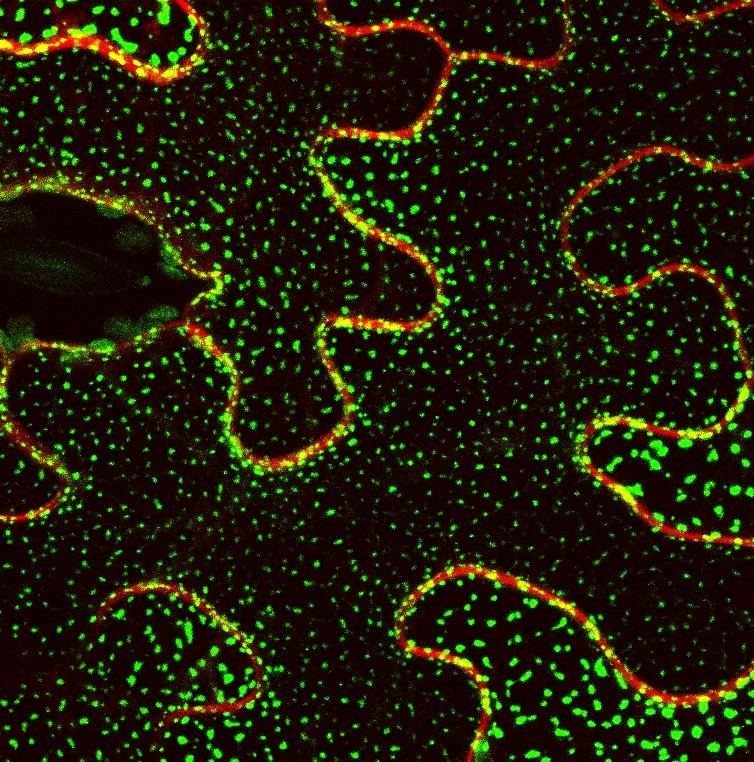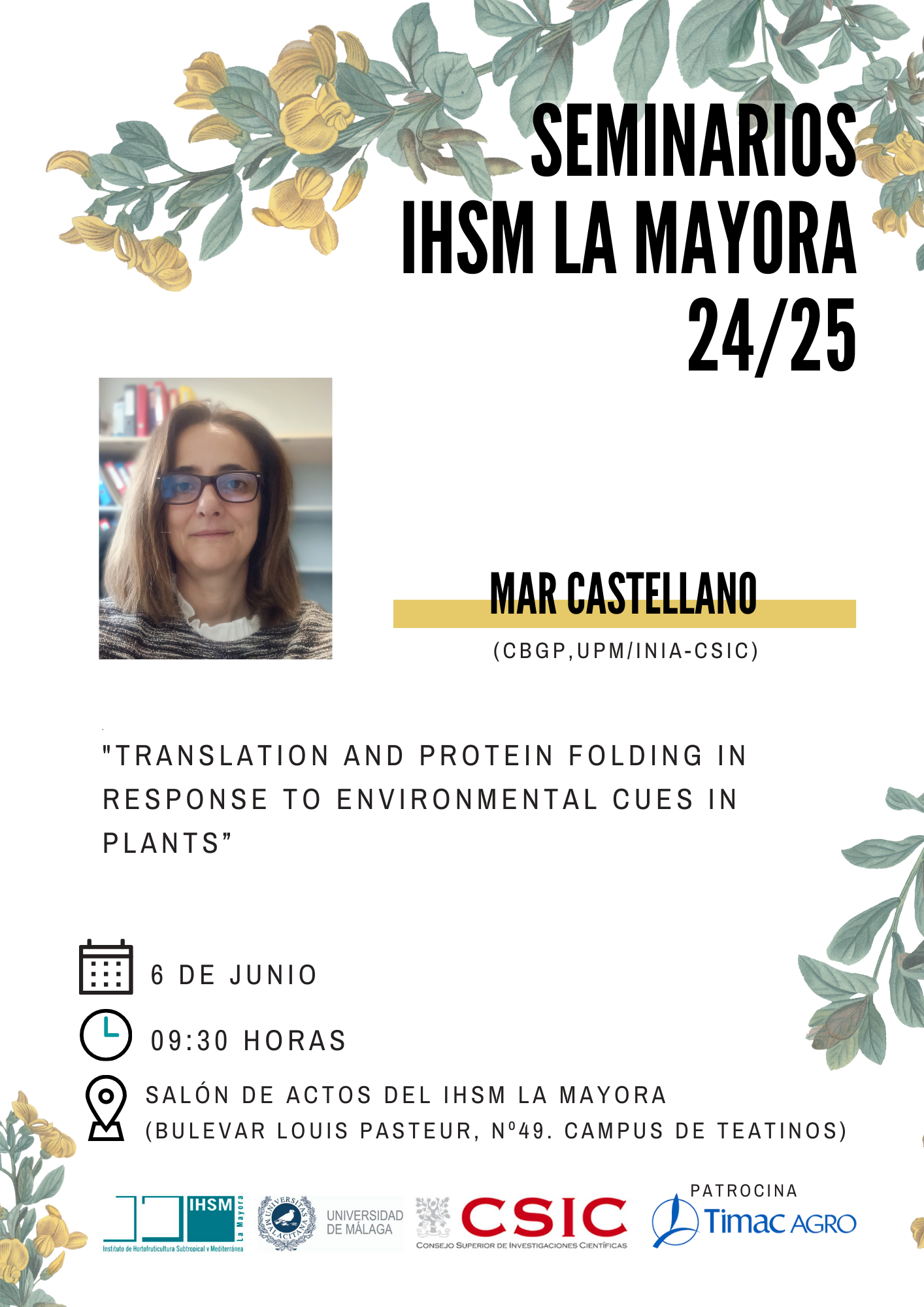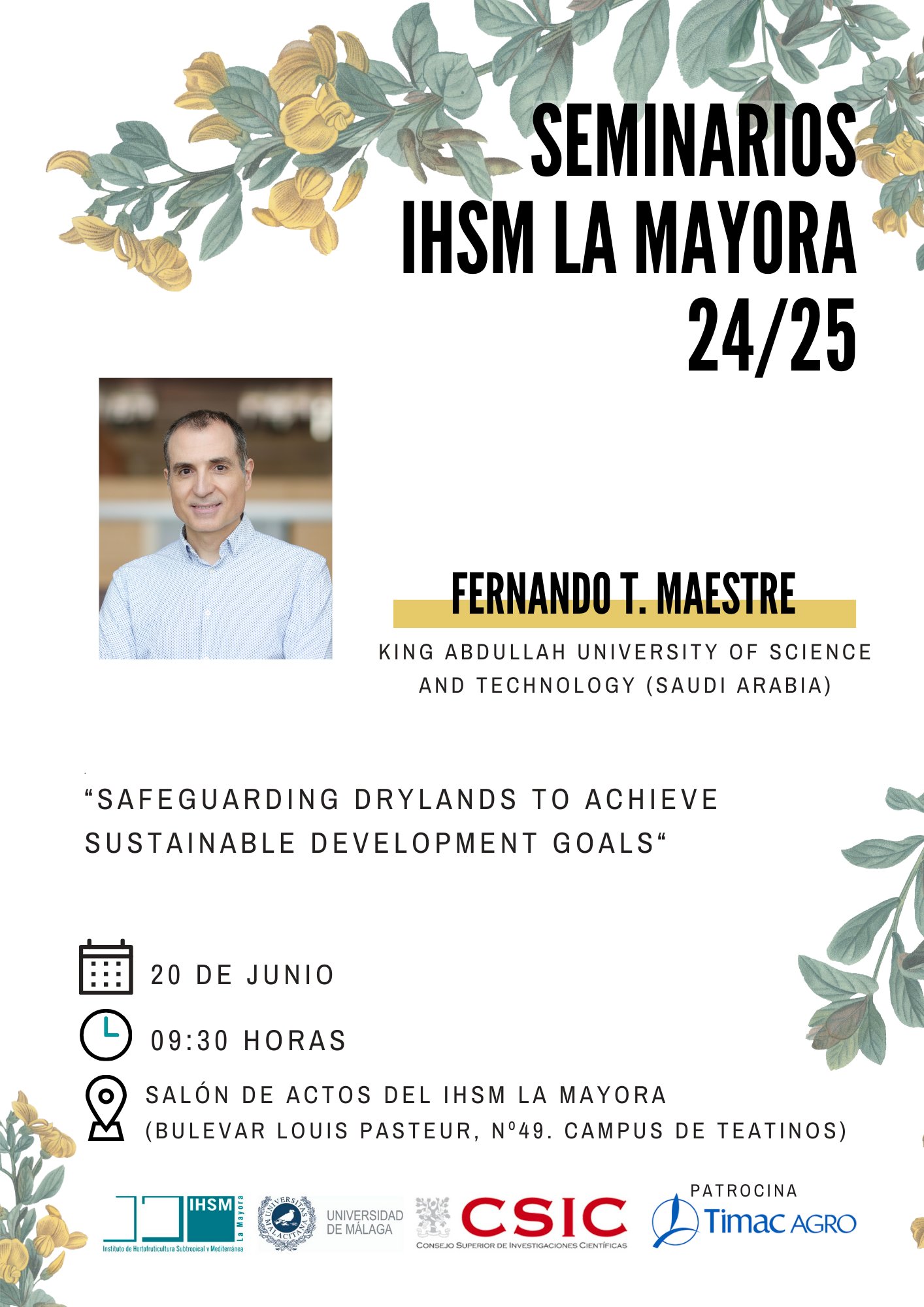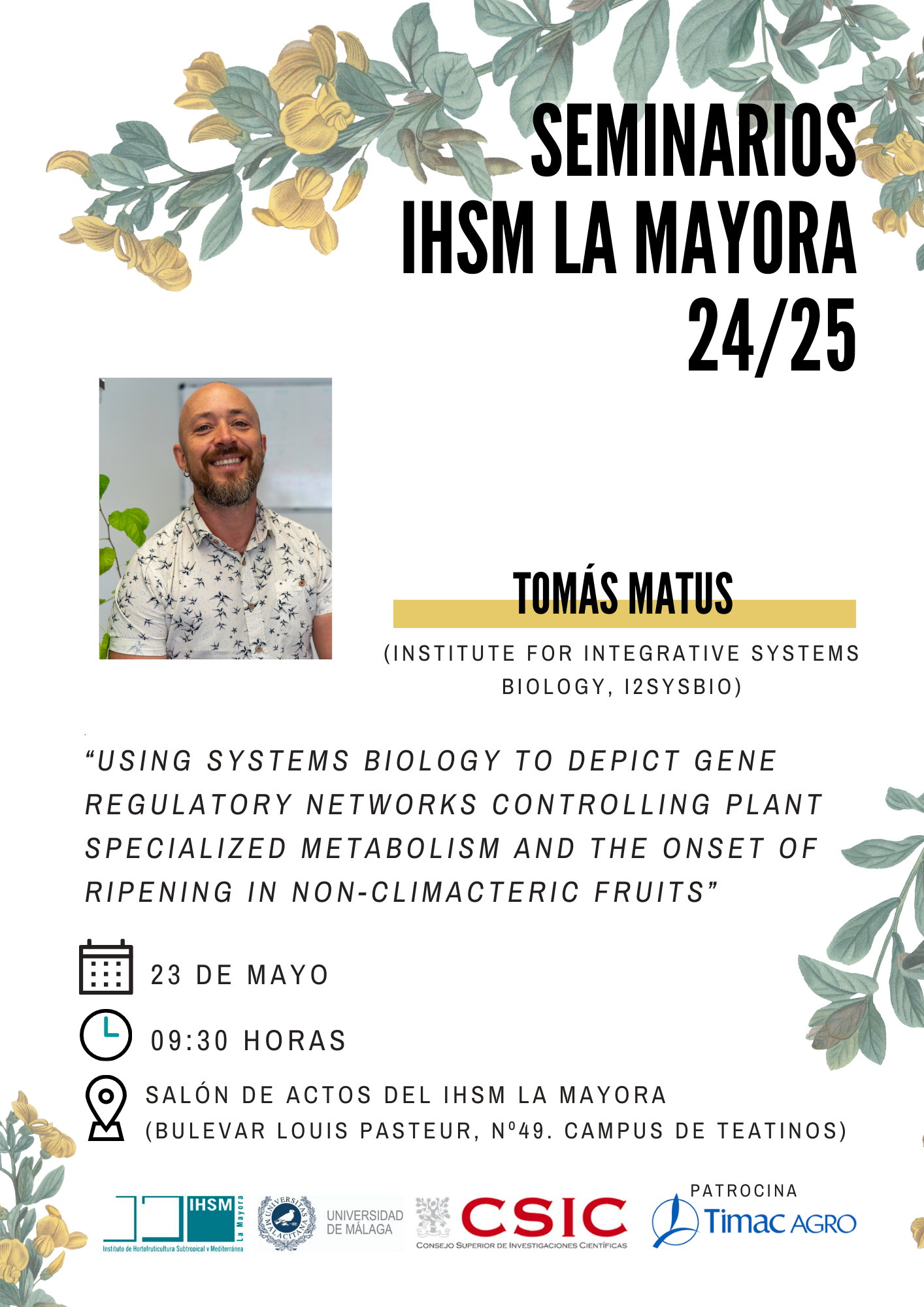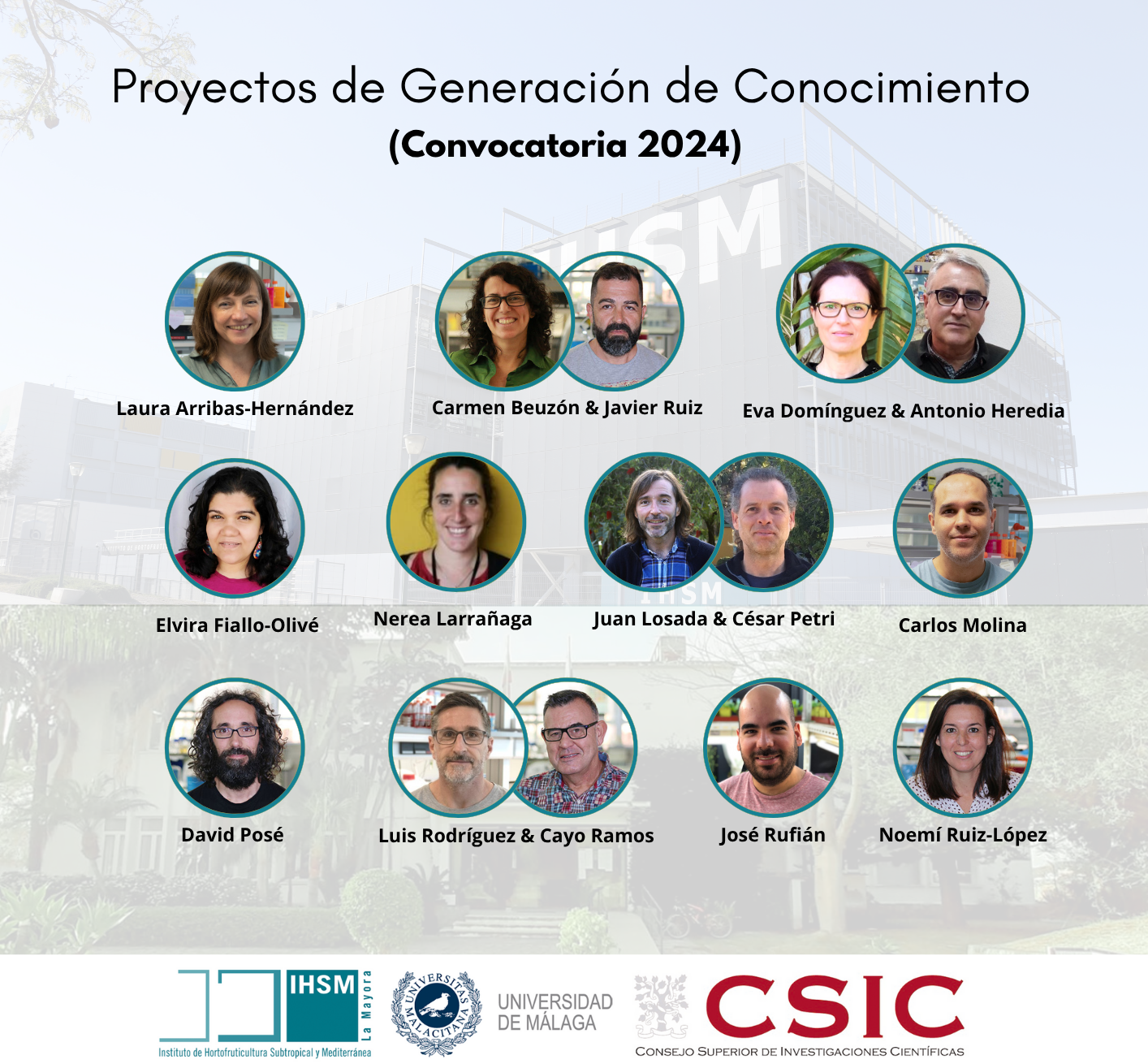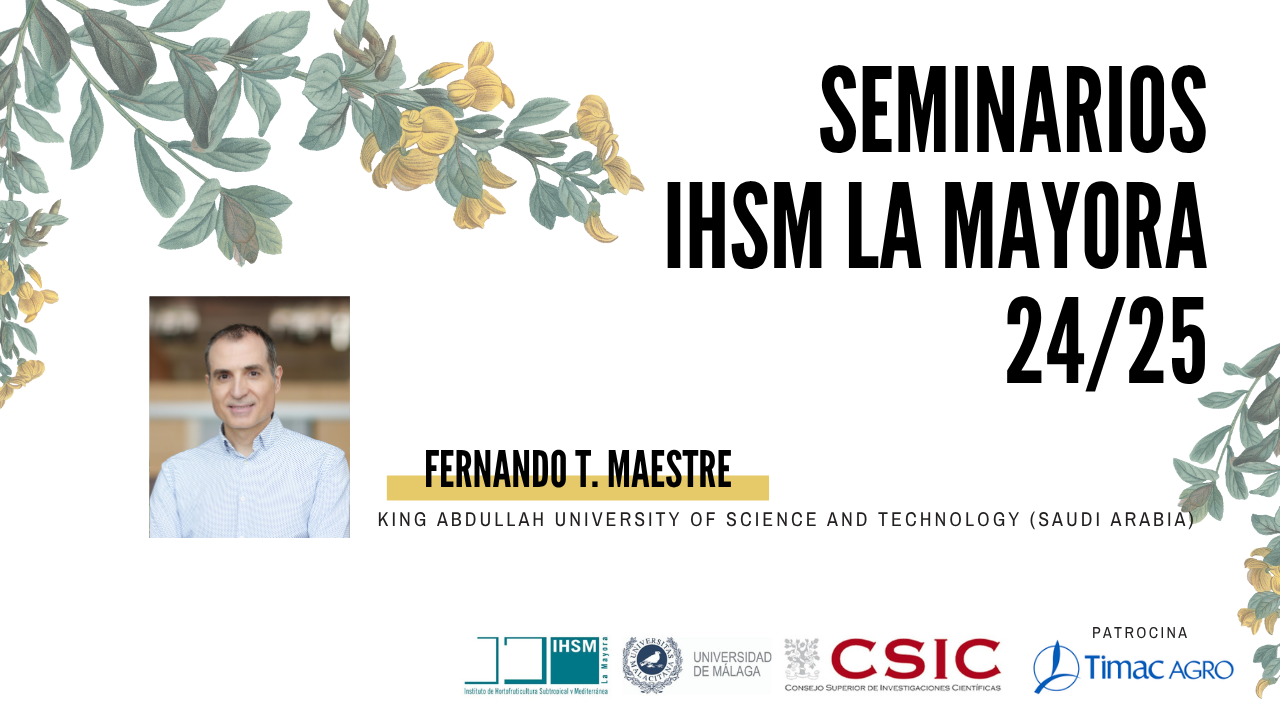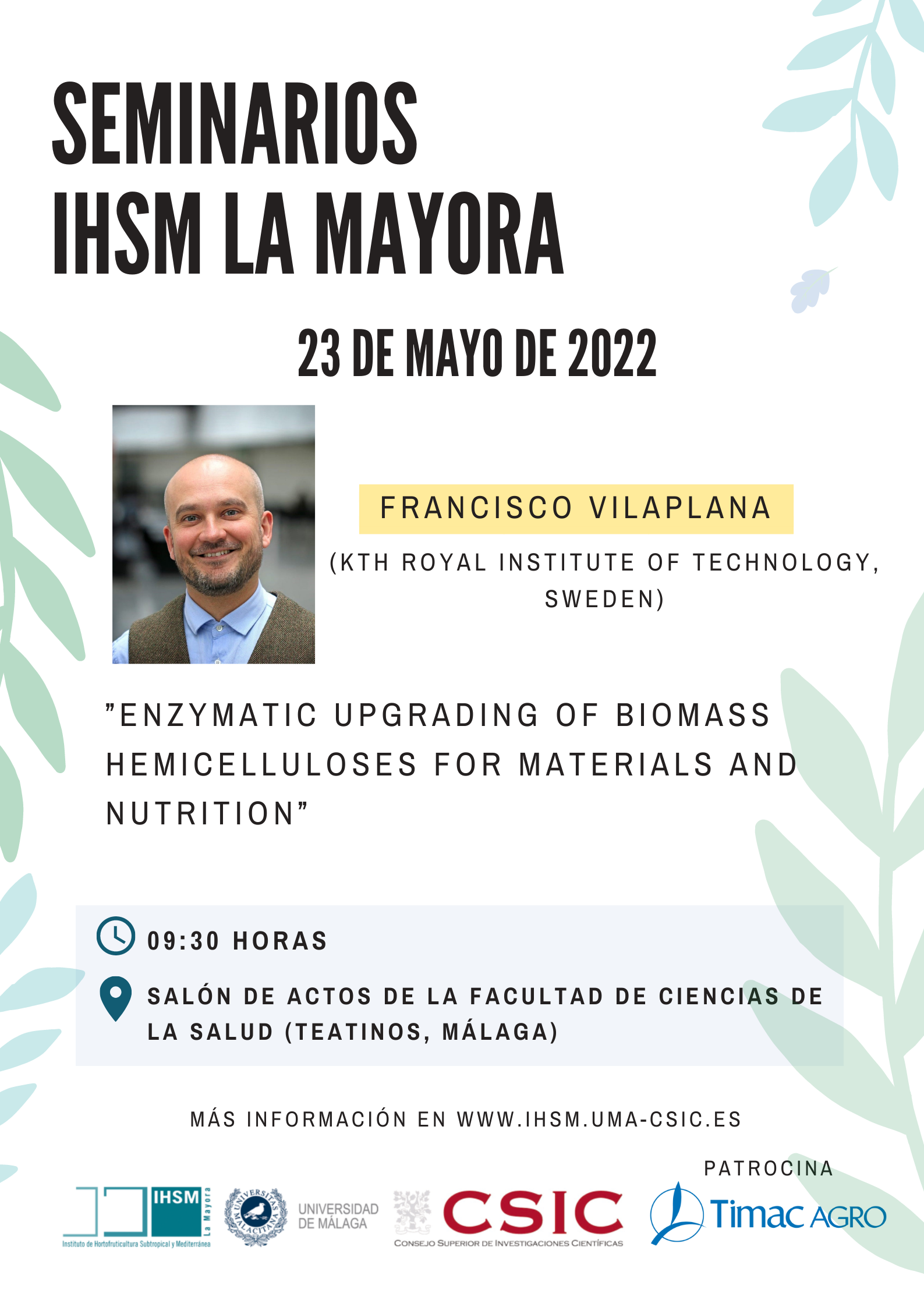
Seminarios IHSM La Mayora - Francisco Vilaplana (KTH Royal Institute of Technology, Sweden)
”Enzymatic upgrading of biomass hemicelluloses for materials and nutrition” Lignocellulosic biomass from higher plants (e.g. wood) and grasses (e.g. cereals) are the main renewable resources in the biosphere for the production of food and structural materials. Lignocellulose consists of a complex polymeric network of cellulose microfibres, hemicelluloses and lignin with exquisite hierarchical organization from the nano- to the micro-scale. In particular, hemicelluloses are fundamental lignocellulosic components that are able to interconnect cellulosic fibres with lignin components thanks to their specific molecular structures. In my group we are exploiting our biological understanding of hemicellulose structure to engineer advanced materials that can be used as matrices for food and biomedical applications with specific bioactive properties. We use nature’s biocatalysts (e.g. enzymes) to tailor the biochemical structure and network assembly of these materials, which in turn influence important functional properties (e.g. rheology) and their bioactivities. In this presentation we will cover the basics on how different wood hemicelluloses (e.g. mannans and xylans) can modify the biomechanical properties of cellulosic fibres. We will discuss how cereal xylans from different sources (e.g. wheat and corn) can be exploited through enzymatic oxidative coupling to generate hydrogels with radical scavenging applications. The network structure of the hydrogels and the resulting rheological properties is dependent not only on the molecular structure of the xylans, but also on the supramolecular interactions, either if they are mediated by backbone or by side chain interactions. Enzymatic upgrading allows us to create a wide range of novel bio-based materials with targeted functional properties and bioactivities, combining the diversity of biomolecular components in lignocellulosic biomass. Francisco Vilaplana, Associate Professor Francisco Vilaplana is Associate Professor and Head of the Division of Glycoscience at KTH Royal Institute of Technology (Stockholm, Sweden). Francisco leads the research group “Biotechnology of Carbohydrates from Biomass” at KTH with 10 early-stage researchers funded by public and industrial national (Swedish) and European organizations. The vision of his research is to exploit the rich molecular diversity in terrestrial and marine biomass towards novel functional products for food, biomedical and structural applications. His research interests include: (i) the molecular structure and multiscale assembly of plant and fungal cell walls, (ii) the design of sustainable 'biorefinery' processes for biomass exploitation using green chemistry and biocatalysis, (iii) the chemo-enzymatic modification of carbohydrates for material and food applications, and (iv) understanding the effect of dietary polysaccharide structure on their nutritional properties. This research is directly aligned with the sustainability goals towards the transition to a bioeconomy. Dr. Vilaplana is currently the Director of KTH Food - the Multidisciplinary Research Environment for Sustainable and Healthy Food Systems. He is Chair of the Panel “Bioresource Technology, Chemical and Environmental Engineering” of the Swedish Research Council (VR). He is as well Honorary Associate Professor at the Centre for Nutrition and Food Sciences, The University of Queensland (Australia). Finally, he is the President of the Association of Spanish Researchers in Sweden (ACES, www.aces-sffs.com) and of the Network of Associations of Spanish Researchers Abroad (RAICEX, www.raicex.org).

